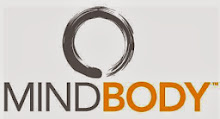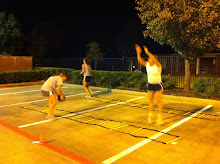FACT: Most people who skip meals tend to overeat later in the day.
MYTH: Eating in the evening causes weight gain.
FACT: The time that you eat does not affect weight gain. It is the amount of calories you take in during the entire day.
MYTH: Some foods like grapefruit and cabbage help to burn fat.
FACT: No food burns fat. Reduced calories eaten and daily physical activity is the best way to lose weight and burn fat.
MYTH: Quick weight loss diets equate to permanent weight loss.
FACT: Quick weight loss diets are typically water losses that will be regained. A slow weight loss of 1-2 lbs. per week is most effective long-term.
MYTH: I can lose weight while eating whatever I want.
FACT: To lose weight, you need to use more calories than you eat. It is possible to eat any kind of food you want and lose weight. You need to limit the number of calories you eat every day and/or increase your daily physical activity.
MYTH: Low-fat or nonfat means no calories.
FACT: A low-fat or nonfat food is often lower in calories than the same size portion of the full-fat product. But many processed low-fat or nonfat foods have just as many calories as the full-fat version of the same food or even more calories. They may contain added sugar, flour, or starch thickeners to improve flavor and texture after fat is removed. These ingredients add calories.
MYTH: High-protein/low-carbohydrate diets are a healthy way to lose weight.
FACT: The long-term health effects of a high-protein/low-carbohydrate diet are unknown. But getting most of your daily calories from high-protein foods like meat, eggs, and cheese is not a balanced eating plan.
MYTH: It is less fattening to drink juice than milk
FACT: A glass of juice contains more calories than a glass of 1% milk. While juice contains mostly sugar and some vitamins, milk has more nutrients such as protein, calcium, potassium and Vitamin D.
MYTH: Dairy products are fattening and unhealthy.
FACT: Low-fat and nonfat milk, yogurt, and cheese are just as nutritious as whole milk dairy products, but they are lower in fat and calories. Dairy products have many nutrients your body needs. They offer protein to build muscles and help organs work properly, and calcium to strengthen bones. Most milk and some yogurts are fortified with vitamin D to help your body use calcium.
MYTH: Drinking wine instead of beer it is better
FACT: It is simply not true. One glass of wine (5 oz) contains ~130 kcal where as one bottle of beer (12 oz) has ~150 kcal. Remember, the sweeter the wine, the more sugar and calories it contains. By the same token for hard liquor; the higher the proof, the higher the calories.
MYTH: Starches are fattening and should be limited when trying to lose weight.
FACT: Many foods high in starch, like bread, rice, pasta, cereals, beans, fruits, and some vegetables (like potatoes and yams) are low in fat and calories. They become high in fat and calories when eaten in large portion sizes or when covered with high-fat toppings like butter, sour cream, or mayonnaise.
MYTH: Nuts are fattening and you should not eat them if you want to lose weight.




















